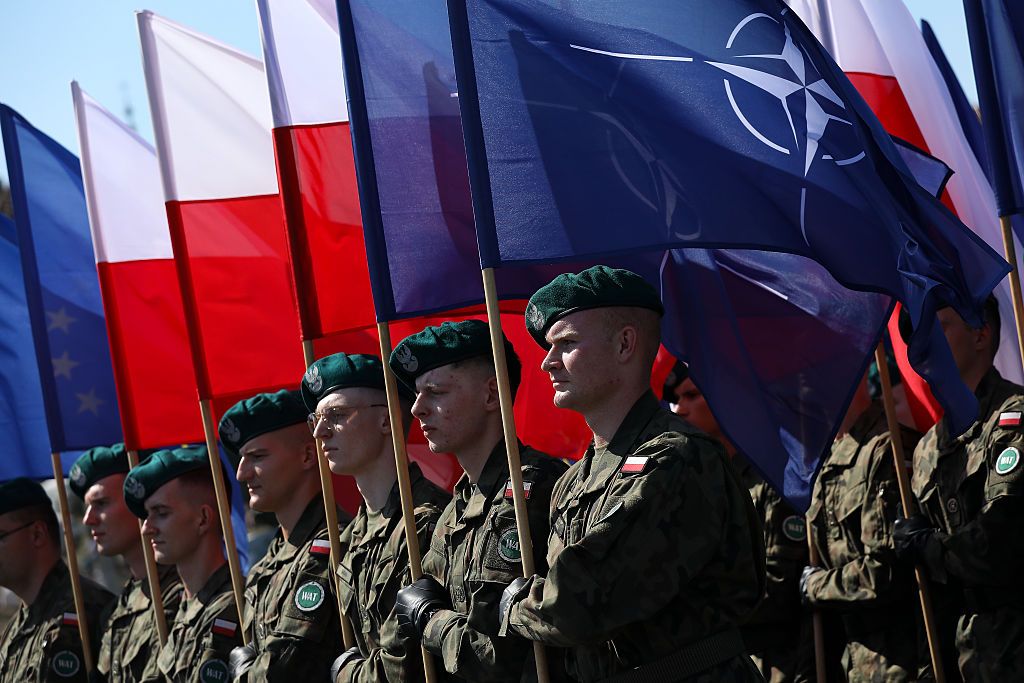Ukrainian journalist dismissed after insulting Polish president amid Kyiv-Warsaw tensions

Vitalii Mazurenko, a Ukrainian journalist and deputy editor-in-chief of the Polish outlet Obserwator Miedzynarodowy, was dismissed after insulting Polish President Karol Nawrocki, according to the outlet's statement published on Aug. 27.
The news comes amid rising tensions between Ukraine and Poland, a country that, since the start of the full-scale invasion, has been one of Kyiv’s key allies.
Earlier this week, during a live broadcast on the Polsat News, Mazurenko called Nawrocki "pachan," a slang term used in criminal circles to describe a gang leader or crime boss.
In a follow-up statement, the media outlet said that Mazurenko’s comment reflected his personal opinion and did not represent the position of the publication.
"As a Polish portal, we strongly reject and do not tolerate any undermining of the authority of the President of the Republic of Poland," the statement read.
Witalij Mazurenko w Polsacie określił Prezydenta Nawrockiego de facto jako jakiegoś przywódcę gangu więziennego. @PK_GOV_PL - oczekuję wszczęcia śledztwa z art. 135 par. 2 kk, czyli znieważenia Prezydenta.
— Sebastian Kaleta (@sjkaleta) August 26, 2025
Pan Mazurenko dowiódł słuszności weta i kontrprojektu Prezydenta. pic.twitter.com/sxGb8t16Qi
Under Polish law, publicly insulting the president is a criminal offense punishable by up to three years in prison.
Mazurenko, who is originally from Ukraine but holds Polish citizenship, later apologized for his remarks. Nevertheless, Zbigniew Bogucki, head of the Polish President’s Office, called for legal action to be taken against him.
"Polish citizenship should be a unique honor and an obligation to put Poland and its interests first," Bogucki said.
The official suggested that this case may be a reason "to start a serious discussion" about introducing laws in Poland that would allow for revoking citizenship "acquired through naturalization."
The news came days after Nawrocki vetoed a bill that would have extended financial support for Ukrainians fleeing the war.
The Polish president also proposed amendments that would extend the period needed for acquiring Polish citizenship, introduce harsher penalties for illegal border crossings, and equating the "Bandera symbols" with Nazi and Communist symbols in Poland's criminal code.
The move sparked tension between Poland's President's Office and Kyiv but also led to some backlash in Poland.
Polish women, including two former first ladies, urged the president to reverse the veto, arguing that his decision disproportionately harms Ukrainian refugee women, their children, the elderly, and the sick.
"We call on you — those who make the laws and represent the Republic — to restore a sense of protection and reject words that stigmatize rather than safeguard," read the letter published in the Gazeta Wyborcza on Aug. 27.
"Let the laws serve the people, not political games."
Nawrocki, a conservative backed by the opposition Law and Justice party, narrowly won Poland's presidential election on June 1 with 50.89% of the vote, defeating Warsaw Mayor Rafal Trzaskowski, backed by Prime Minister Donald Tusk's ruling coalition.
A historian-turned-politician, Nawrocki's ascent to the presidential office signals growing challenges for Polish-Ukrainian relations. While the new head of state affirmed support for Ukraine's struggle against Russian aggression, he also spoke out against Kyiv's EU and NATO aspirations, often drawing attention to past historical grievances.
The conservative's victory also maintains the ideological divide between the Polish Presidential Office and Tusk's centrist government.














